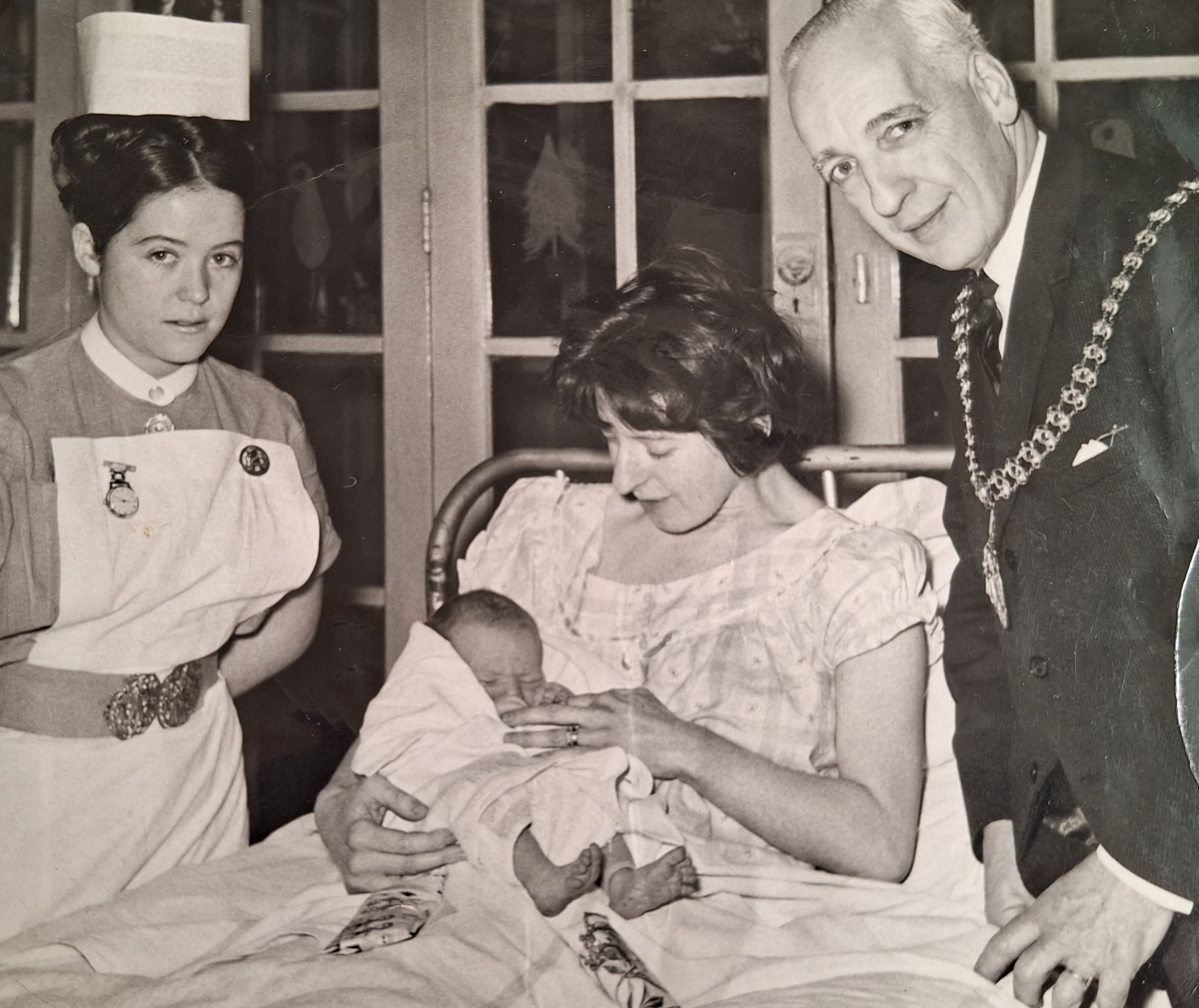
NHS75: Marcella Warburton's memories of NHS nursing training
Marcella Warburton started her nursing career at the age of just 16, when she moved away from home to train as a cadet nurse.
Her wage was 7s6d per week, and she lived in a nurses’ home, with strict orders to be home and in bed by 10pm.
The two-year induction included visiting a fever hospital and learning anatomy, before she was finally allowed on the wards – where her duties included collecting up patients’ false teeth for cleaning before returning them to the right person.
Now 80, Marcella is sharing her memories as part of the celebrations for the NHS’s 75th birthday on 5 July.
She said: “I did originally think about being an air hostess but from the age of 15 I knew I wanted to be a nurse; I just wanted to look after people.
“I started my training in 1959, when only two hospitals were doing the cadet nurse scheme. It was designed to pull in young people to nursing.
“To begin, as a student nurse, with there was very little contact with patients – we spent a lot of time cleaning! I remember collecting up the stainless-steel bedpans, which had to be sterilised and boiled once a day.
“Then I would clean the sluice and the toilets and sometimes I would get on my knees and scrub the floor in the sluice because I didn’t think it had been cleaned enough.”
Mealtimes were a strict affair, with a scale on the trolley so food could be weighed for diabetic patients. The ward sister was in charge of the meals, with junior nurses helping to serve food and clear up, as well as keeping patients supplied with tea and water throughout the day.
There was a strict hierarchy on the ward and elsewhere, with staff standing to attention when the doctor arrived.
Marcella said: “The doctors were gods. Only the sisters went on the rounds with them. We had to make sure all the patients were sitting up in bed or in the chair, and the beds were neatly made with all the corners tucked in.
“Some sisters were very strict and everyone was scared of them, but they knew what they were doing so you respected them. It made us do everything properly, or we would get told off.
“Matron came at lunchtime, and we had to be on our best behaviour for them and they would sometimes test us on patients’ names or their treatment.
“In the dining room the cadet nurses were served last and we only had a half hour break, so if we wanted coffee, which was served back in the nurses’ home, we had to run there and back.”
Some students did test the rules, with nurses climbing in through their bedroom windows after the 10pm check.
Marcella said: “I was always too scared to do that, but they would throw stones up when they wanted us to let them back in, so that was our role.”
Student nurses had to pass exams every year, including on anatomy and physiology, with regular lectures to help their studies.
After completing the final exams in 1964, Marcella was a State Registered Nurse, and chose to work on a medical ward.
She said: “Back then there were no speciality wards so we had everything from heart attacks and strokes to leukaemia.
“I remember one young boy, who was 14 and had leukaemia and needed the care of the physicians two or three times a year.
“He became a little favourite of mine and we would go and sit in the bathroom and have a natter.
“He went home and died at home, and his parents sent me his St Christopher’s medal to keep. I still think about him.”
Marcella completed the first part of her midwifery training as part of her standard training, and decided to complete the second part as well. When she qualified, she was then asked to work in a new maternity unit for a year, but never looked back.
Her career took her to Iran, helping to commission obstetric and paediatric services, but the revolution started and after returning to the UK on holiday she found she couldn’t get back.
Marcella worked in care of the elderly for many years, including as a matron in a Royal British Legion home. She worked for the Nursing and Midwifery Council as a Fitness to Practice panellist, and also volunteered at the Queen Elizabeth The Queen Mother Hospital in Margate and served as a Governor for the Trust as well.
She said: “I’ve been able to use my nursing skills in many different ways over the years and it has certainly been a varied career.
“A lot has changed over the years, from the roles nurses perform to the advances in medicine and I am definitely glad we still have the NHS.”